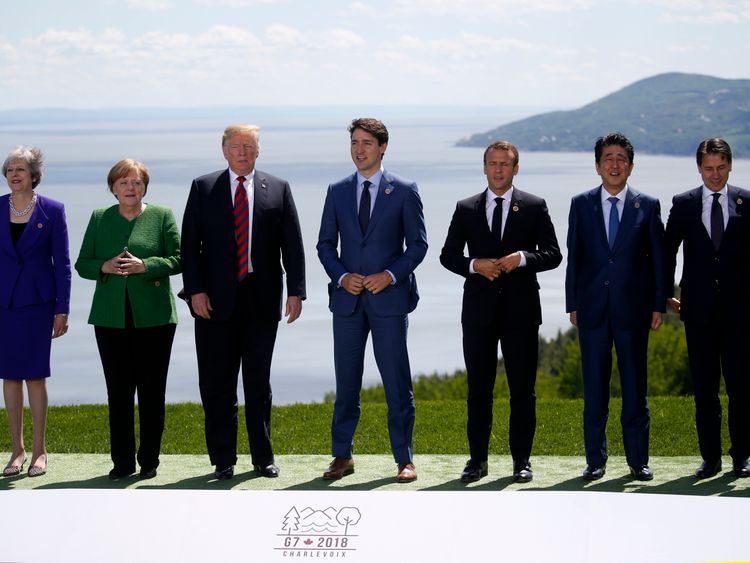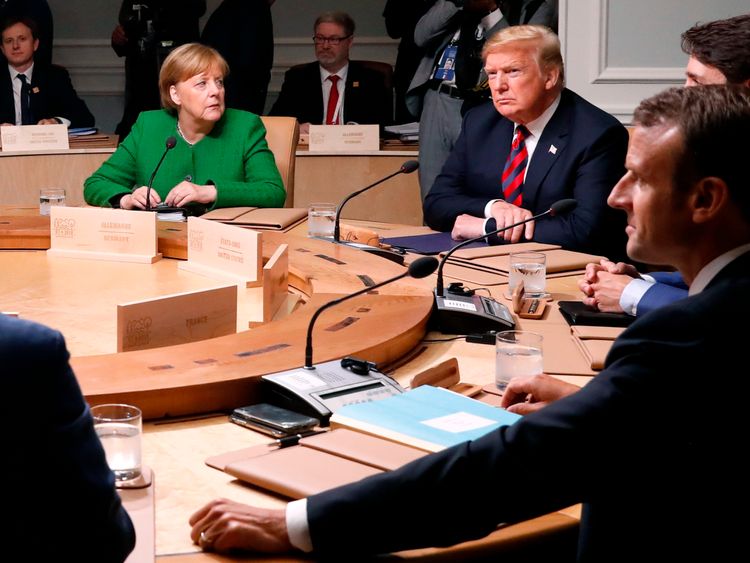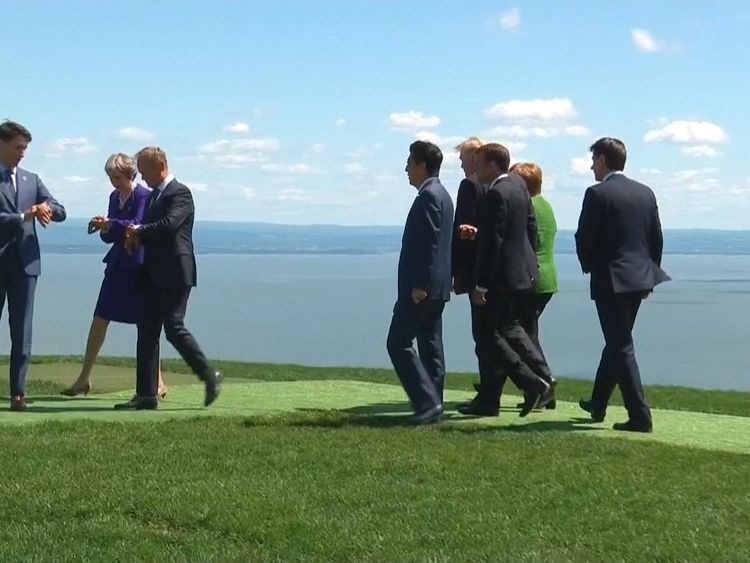G7 countries have agreed to a "rapid and unified" response to hostile actions by Russia in the wake of the nerve agent attack in Salisbury.
Leaders of the seven richest nations vowed to send a "strong message" that interference by Russia and other foreign states will "not be tolerated", Prime Minister Theresa May said.
Under plans agreed by the UK, US, France, Germany, Canada, Italy and Japan, there will be greater co-ordination to respond to threats including cyber attacks and other breaches of international rules.
Mrs May also pushed for action to tackle Russian "dirty money" and work to curtail the movement of Moscow's spies.
And the PM urged other countries to support giving the chemical weapons watchdog the power to identify states responsible for attacks such as the poisoning of Sergei Skripal and his daughter Yulia.
Mrs May said: "There is no doubt that foreign interference in our democratic institutions and processes, and other forms of hostile activity, pose a strategic threat to our shared values and interests.
"Calling out malicious activity helps to end hostile states' false sense of impunity, demonstrates our awareness of their activity, and underlines our unwavering willingness to defend ourselves."
The G7 countries have agreed to share information between themselves to thwart foreign meddling in elections in their countries.
They have also committed to working with internet service providers and social media companies to tackle the issue.

"Foreign actors seek to undermine our democratic societies and institutions, our electoral processes, our sovereignty and our security," the G7 leaders said in a statement.
It came as European members of the G7 rejected Donald Trump's call to reinstate Russia to the group.
Mrs May met with the leaders of Germany, Italy and France after the US president said Russia should be allowed back "at the negotiating table".
The decision to kick out Russia was in response to Vladimir Putin's annexation of Crimea in 2014, which was widely denounced as a violation of Ukraine's sovereignty.

German chancellor Angela Merkel said: "We are in agreement that a return of Russia to the G7 cannot happen unless substantial progress is made in terms of the problems with Ukraine."
Before arriving at the summit in Quebec, Mr Trump had said: "Why are we having a meeting without Russia in the meeting?
"They should let Russia come back in because we should have Russia at the negotiating table."
A Kremlin spokesman said they were interested in "other formats", apart from the G7.

The summit has already been dubbed the "G6 plus one" due to Mr Trump's isolation over trade and his decision to pull the US out of the Iran nuclear deal.
Mrs Merkel said it was too soon to say whether leaders would issue a common communique at the summit because the leaders had not yet addressed trade and climate.
"In my view it is important that we not agree on less than we achieved last year," she said.
But Mr Trump predicted the G7 countries would agree on a joint statement after holding talks with Canadian Prime Minister Justin Trudeau.
More from Angela Merkel
"I think we'll have a joint statement," the president said.
Mr Trump plans to leave the summit early and will skip G7 meetings about climate change, clean energy and ocean protection.
[contf] [contfnew] 
Sky News
[contfnewc] [contfnewc]






